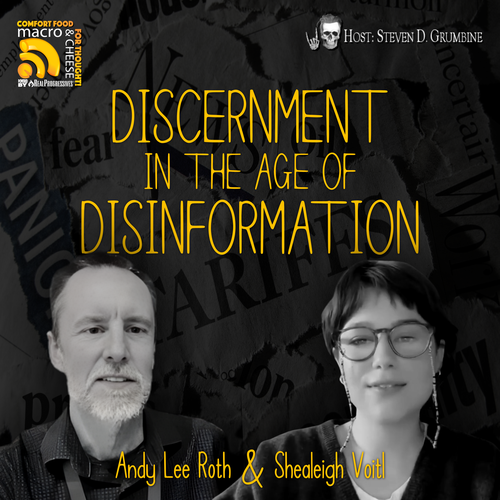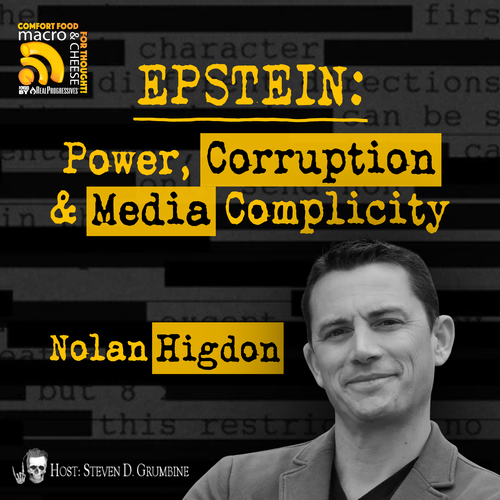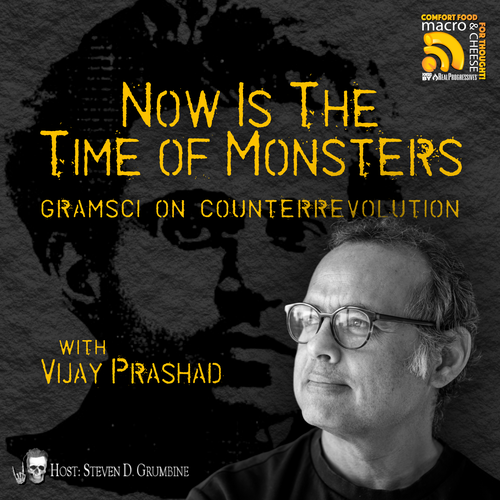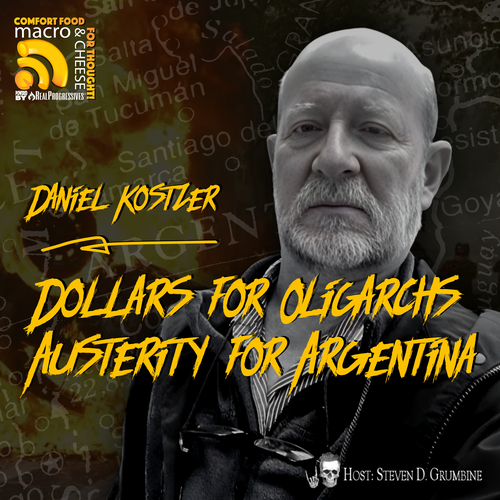Recently, Steve Grumbine appeared on the JENerational Change podcast, where he made an astute and insightful observation in his critique of Andrew Yang’s approach to policy. He said “I don’t look for individual solutions…I don’t have enough of the knowledge…or connecting points to make some decisions that I think really are fundamental to being successful in this society.” It’s worth drilling down on this observation from the standpoint of human psychology because it is critically important to so much of what RP is trying to achieve.
To do this, we must turn to the Rosetta Stone of human consciousness and decision-making, two phenomena that define our human limitations. The first is the attentional bandwidth problem: the fact that the conscious mind can only focus attention on one thing at a time, and we rely on automatic processes and mental shortcuts to handle everything else. We may be able to switch rapidly between several topics, but at any given moment we can only focus on one. The second is the cognitive energy problem: the fact that our higher brains run on a limited fuel supply and higher brain functions consume that fuel faster than it can be replaced. Functions like skepticism, discernment, and decision-making are all examples of functions that drain resources faster than the brain can replace them. Our brains are therefore designed to automatically conserve those resources in a variety of ways.
The reality is that none of us, no matter how smart or well-informed, have enough of the knowledge or connecting points or even cognitive capacity to make discerning judgements on all the decisions we make in our personal lives in a single day. The vast majority of simple choices we make in a day are handled by a set of automatic processes designed to facilitate making snap judgements referred to by psychologists Daniel Kahneman and Amos Tuversky as “heuristics and biases”. Heuristics are automatic rules of thumb and guesses the brain makes in an instant when we have inadequate information and biases are automatic prioritizing of our attention on certain types of information but not others. Heuristics and biases operate automatically without conscious control, and unfortunately can be manipulated by outside influences. Professionals in sales and marketing, advertising, and PR are well-trained in these dark arts, a sampling of which is described in Robert Cialdini’s book “Pre-suasion”.
We also lack both the time and the cognitive energy to assimilate and process the necessary information to make an informed and careful decision on every issue of importance to us. The more we have to do either of those things, the more time we lose and the less cognitive energy we have available to spend on more productive tasks. This, too, has been weaponized against the general public. Behavioral economists and psychologists have written at length on the concept of “cognitive overload.” This can be achieved by presenting too many choices, using dense language, requiring additional effort to find relevant information, or any of a variety of other methods that increase the cognitive resources required to achieve the payoff. We are all familiar with the concept of search algorithm de-ranking, which works because in the overwhelming majority of cases the average user never clicks past the first page of search results. The same phenomenon is at play in what we know as “the fine print.” Dense and dry legalistic language in small font that we are required to agree to before we can start using products that we want or need. Studies cited in Shoshana Zuboff’s “Age of Surveillance Capitalism” have shown that reading the text of the average number of privacy policies a typical web surfer encounters in a year would take 250 hours or 31.2 full 8-hour working days. That’s not even considering taking the time to understand them. Or adding in all of the other fine print documents such as “end user license agreements” and “terms and conditions” and other such devices. We can see similar techniques used in 800 page corporate-drafted legislation making its way through congress with sinister provisions hidden in obscure places. We can see in documentary series like “The Con” and its spinoff podcast “The New Untouchables” how cognitive barriers in financial instruments, laws, contracts and corporate structures can be used to hide malfeasance in plain sight. Bad actors can trust that the number of people able to penetrate those barriers will be insufficient to stop it. With these limitations we have no choice but to rely on our brain’s energy-saving measures such as trust and status quo bias. We have no other option if we want to accomplish what we need to for survival. We have to click “I agree” without reading the fine print, we have to leave the default settings in place. We haven’t the time and our brains haven’t the processing power to do otherwise.
We have been conditioned for years by advertising and popular culture to equate “choice” and “options” with freedom. But as we now know, these things can be and are weaponized to do the opposite. Overloading ordinary people with petty choices and hard to process information is the most effective way to short-circuit free will and self-determination. This is the fly in the ointment for the bootstrapping narrative and the libertarian emphasis on “personal responsibility”. This is why their blithe dismissals of malfeasance with the assertion of “caveat emptor” (buyer beware) just doesn’t work. The limits of human cognition render it impossible and impractical for any individual to take on that kind of responsibility, and the results of pretending otherwise are tragic and evil.
With these limitations, human civilization has survived for millennia by outsourcing our discernment to others in the form of trust. Anthropologists and economic theorists refer to a concept known as “social capital”. This refers to the ability to trust and assume that other people and institutions are on the level and acting honestly in all of their dealings. It is a broad concept that encompasses pretty much all societal norms of trust and reciprocity. Without it we have no society or community or even economy. It is the assumption that agreements will be honored, that information can be trusted, that offers are genuine. It is the glue that holds any society together. It is no accident that increases in instances of depression and other mental health conditions track closely with deregulation and consolidation. It is no coincidence that the spread of conspiratorial and irrational beliefs correlates with increasing levels of distrust in government, media, and societal elites. The inability to trust neighbors, communities, businesses, the news, the authorities, elected officials or other institutions results in severe cognitive overload. Social capital anchors us not just to each other and the world around us, but frequently to reality itself.
There is only one possible way to compensate for these limitations on our capacity. We must come together in communities. We must bring those communities together in supercommunities. We must restore social capital and learn to trust one another, and we must earn the trust of others. What happens to one of us affects all of us, and we do ourselves no favors by pretending otherwise. We stop the suffering of individuals by coming together collectively to protect all of our interests. We only harm ourselves when we leave others to be destroyed by forces greater than any one of us can control or even fully comprehend. We need to understand that none of us is an island and that we all depend on one another. Alone as individuals we are vulnerable and only human. Those human limitations put a ceiling on our freedom and our power to shape a better world. But collectively as a community we are so very much more. Together we pool our knowledge and cognitive resources, close our vulnerabilities and multiply our strength. Collectively we can weather any storm, outsmart any villain, or solve any problem. In this time of change and upheaval, Steve Grumbine sums the situation up perfectly in the JENerational Change interview: “There’s too much going on right now for us to be a bunch of rugged individualists.”










Preaching to the choir. Time for a major paradigm shift. Societies are formed to enable its members to specialize in such a way as to provision everyone equitably and according to their needs while reducing the labor time required to meet those demands such that more time is afforded everyone to improve on their skills and lifestyle conditions. Imagine a society that insures that all of its citizens are free to focus on creating better practices and mechanisms for provisioning needs and social well being for their communities. The constant focus on survival is a symptom of the failure of proper governance. Healthy governance can only exist when bad faith actors are excluded from the policy creation and good faith actors are encouraged to participate. Now imagine a society that creates its own currency and can pay anyone and everyone a bountiful living income to participate in the creation of such a society. Everyone spending their time participating according to their needs of significance, belonging and desire for contribution while improving rather than playing catch-up and being forever in deficit. A society of safe healthy sated citizens striving only to improve what they have done. Oh, by the way, many of us live in a nation that creates its own currency and can spend as it wishes. The issue is that there are too many political sociopaths in public office willing to do harm for the sake of opportunity, social capital, hierarchy, profit and/or pleasure. We can change this. If we co-create a cultural dictate that has a zero tolerance for the sociopathic choices and adopt one that requires moving toward a best practices learning curve. We need to be able to hold the vision clearly without expectation or time frame first and foremost. If we do, our actions will flow from that vision naturally as we intend to look for opportunity and reinforce the vision for others and ourselves.
you leave out the effects of trauma on our executive functions and our cognitive communication. those who have experienced trauma gain valuable insight on the failings of our systems that others who didn’t, and may never know. (yet we do not tap into that knowledge so history repeats… ) we lose trust in the systems and its participants who failed us. we lose trust in those outside of the system who continue to shame and blame us even though we’re its victims. Yeah, you do. We see you. We can tell by your actions, by how you treat us. those who are trauma-informed- we know you get us. thank you for being there for us. And no, we are not in the mood for a college-level lecture on an obscure, dry topic that does not directly relate to our here and now – we need relevancy. we need brevity. we need efficacy. we need immediacy. we need Hope NOW and for you to meet us at OUR level, not yours.